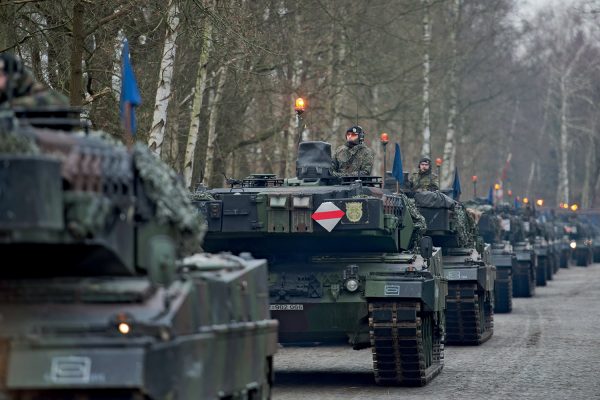
European countries have agreed to deepen defense cooperation outside NATO.
The so-called Permanent Structured Cooperation involves 23 of the EU’s 28 member states.
Ireland and Portugal are expected to join later. Denmark, Malta and the United Kingdom will probably stay out.
All EU countries in Central and Eastern Europe have signed up, despite their wariness of weakening defense ties with the United States.
Commitments
The countries have committed to:
- Raise defense spending;
- Raise collective defense investment to 20 percent of overall defense spending;
- Boost joint defense capabilities;
- Make formations available for European army units;
- Harmonize procurement requirements and technical and operational standards without jeopardizing interoperability with NATO;
- Simplify and standardize cross-border military transport (a military “Schengen”);
- Avoid competition between European defense contractors; and
- Submit annual reports to identify weak spots in Europe’s defense.
The effort is backed by a €5 billion defense fund launched by the European Commission this summer.
Learn more
- European military cooperation need not weaken NATO: EU integration would augment NATO and signal European, in the absence of American, resolve.
- Post Brexit, France may get the European army it always wanted: Defense union increases French prestige. It plays to a French strength and a German weakness. It opens the door to fiscal relief by the back door. And, by supporting the French arms and high-tech industry, it boosts the French economy.
